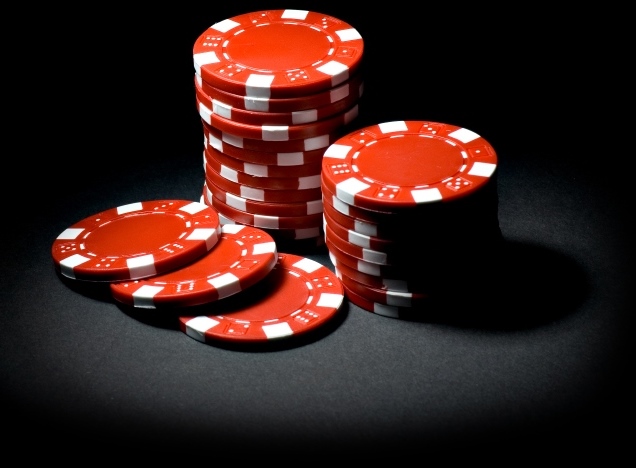- The Reviews
- UNIBET Review 2026
- MANSION Review 2026
- BETSAFE Review 2026
- BWIN Review 2026
- BETSSON Review 2026
- JETBULL Review 2026
- WILLIAM HILL Review 2026
- BET-AT-HOME Review 2026
- ZET Casino Review 2026
- CASINO.com Review 2026
- Mr GREEN Review 2026
- 888 Review 2026
- VEGAS CASINO ONLINE Review 2026
- LAS-VEGAS USA Casino Review 2026
- SUN PALACE Casino Review 2026
- ROYAL ACE Casino Review 2026
- PLANET 7 Casino Review 2026
- CLUB WORLD Casino Review 2026
- SILVER OAK Casino Review 2026
- Free Casino Games
US
- Best Online Casino Games Guide
- Choose Your Best Online Casino
- The Best Casino Games
- Online Card Games
- Best Online Machine Games
- Table Games
- Online Slots
- Complete Modern Online Blackjack Guide
- Free Blackjack Basic Strategy
- Simplified Blackjack Playing Strategy
- How to Play Blackjack Online Like Pros
- Advanced Blackjack Rules and Strategy
- Step-by-Step Blackjack Playing Procedures
- Blackjack Playing Options Guide
- Master Blackjack Card Counting
- Modern Blackjack Card Counters Challenge
- Which is the Best Blackjack Betting System?
- Nine-Count Blackjack Strategy Review
- Blackjack Myths and Errors
- Online Roulette
- Sportsbook
- Online Poker
- Online Video Poker
- Online Scratch Cards
- Online Bingo
- Online Baccarat
- Online Craps
- Asian Casino Games
- Online Keno
- Online Sic Bo
- Casino Bonuses
- Online Casino Reviews
- UNIBET Review, Casino, Sportsbook, Poker & Live Dealers
- BETSAFE Review, Casino, Poker, Live Dealers & Sportsbook
- MANSION Review, Casino, Sportsbook & Live Dealers
- BWIN Review, Sportsbook, Casino, Poker & Live Dealers
- BETSSON Review, Sportsbook, Casino, Live Dealers, Poker
- JETBULL Review -Casino, Sportsbook, Live Dealers
- BET_AT_HOME Review, Sportsbook, Casino, Poker, Live Dealers
- WILLIAM HILL Review -Casino, Sportsbook, Live Dealers, Poker
- ZET Casino Review
- Mr GREEN Review -Casino, Sportsbook & Live Dealers
- CASINO.com Review -Online Casino & Live Dealers
- Las-Vegas USA Casino Review
- Sun Palace Casino Review
- Royal Ace Casino Review
- Planet 7 Casino Review
- Club World Casino Review
- Vegas Casino Online Review
- Silver Oak Casino Review
- Free Casino Games
Blackjack Myths and Errors of Players
Blackjack Myths and Errors should be acknowledged so as not to repeat them.
Many gamblers focus on events that have no bearing on the real outcome of a game. Gambling does many things to people. It changes otherwise rational people into somewhat irrational, superstition-ridden players. Superstition tends to generate myths. Two of the most common ones which come instantly to mind are the belief shared by craps players that if one die flies off the table during the shooter’s roll, a seven will show on the next roll. It is easy to see how this superstition turned into a bona fide belief. Since a seven appears once every six dice rolls anyway, it is easy to remember the times it appeared immediately after one of the dice left the table.
The second gambling myth, which is very common, is the belief that the order of cards in blackjack is affected by the players errors; hence, you should avoid a table of amateurs, since they make the most playing mistakes.
Gambling is full of myths and if you want to become a serious, winning blackjack player, you need to forget the myths and instead focus on the concepts which really can affect your ability to win or lose the game.
- Bonus Amount: $3,000 up to $10,000. The best daily bonuses on the internet.
- Games: An incredible number of slots, table games, and video pokers, including HTML5 games.
- Strong security protocols of 128-bit encryption
- Audited and guaranteed fair by TST
- Website: https://www.lasvegasusa.eu/casino/
- Established: 1999
- Software: Real Time Gaming (RTG)
- US and Canadians players supported
- Platforms Supported: Windows, Mac, iPhone, iPad, & Android.
- Type of Casino: Online & Instant or download.
- Free Slots Games: Yes
- Customer Support: 24/7 live chat support, as well as a toll-free phone number: +506-283-0061, and e-mail support
Write your review of Las-Vegas USA Casino
- Website: http://www.royalacecasino.eu
- Casino Type: download client, instant play, and mobile
- Software: Real Time Gaming (RTG)
- Owner: Emoney Processing Casinos LTD
- Established: 2009
- Casino Promotion: 100% Match Deposit Bonus up to $4,000, Daily and Weekly Bonuses
- Coupon Code: CASINO400
- Currencies: US$, Euros, Yen, Pounds, Bitcoin
- Mobile: both desktop and mobile compatibility
- VIP Program: 5 levels Available
- Support: World Class Support, 24/7 live chat & Toll-free phone number for USA and Canada
- Security: 128-bit SSL encryption
- Certified by: CDS (Central Disputes System)
- Languages: English
- License: Costa Rica
Write your review of Royal Ace Casino
- Bonus: 400% up to $10,000.
- Website: https://www.sunpalacecasino.eu/
- Software: Real Time Gaming (RTG)
- Deposit Methods: ClickandBuy, MasterCard, Money Order, Neteller, Visa Electron, instaDebit, Visa, MST Gift Card, Skrill, Bitcoin
- Withdrawal Methods: ACH, Cheque, Money Order, Neteller, Skrill
- Withdrawal Times: EWallets: 2-5 days, Credit / Debit Cards: 10-12 days, Bank Transfers: 7-12 days, Cheques: 21-28 days
- Pending Time: 3-7 days
- Withdrawal Limit: $5,000 per week
- Games: Incredible number of games of all types
- support: 24/7 through live chat, phone, or e-mail
- Support Response Time: 24 hours via email or Instant using Live Chat.
- Encryption: 128-bit SSL
- Audited and found fair by TST
- Languages: English.
- Progressive Jackpots: up to Million-Dollar.
- Restricted Countries: Bosnia, Costa Rica, Malaysia, Morocco, Netherlands, Russia.
Write a review of Sun Palace Casino
- Bonus: 320% Bonus + 45 Free Spins
- Casino Website: https://www.silveroakcasino.com/
- Casino Promotion: 320% Match Deposit Bonus up to $10,000 in 10 first deposits, up to $100 No Deposit Bonus, Weekly and Monthly Cashback, and much more.
- Casino Type: download client, instant play, mobile, and live dealers
- Software: Real Time Gaming (RTG)
- Live Casino: Available Live Dealers Casino
- Owner: Emoney Processing Casinos LTD
- Established: 2009
- Currencies: US$, Euros, Yen, Pounds, Bitcoin
- Mobile: both desktop and mobile compatibility
- VIP Program: 5 levels Available
- Support: World Class Support, 24/7 live chat & Toll-free phone number for USA and Canada
- Security: 128-bit SSL encryption
- Certified by: CDS (Central Disputes System)
- Languages: English
- License: Costa Rica
Write your review of Silver Oak Casino
- Bonus: First Deposit 350% Bonus + 25 Free Spins
- Website: https://www.planet7casino.com/
- Casino Type: download client, instant play, mobile, and live dealers
- Software: Real Time Gaming (RTG)
- Live Casino: Available Live Dealers Casino
- Owner: Emoney Processing Casinos LTD
- Established: 2008
- Casino Promotion: 200% Match Deposit Bonus up to $4,000, and much more.
- Currencies: US$, Euros, Yen, British Pounds, Bitcoin
- Mobile: both desktop and mobile compatibility
- VIP Program: Available
- Support: World Class Support, 24/7 live chat & Toll-free phone number for USA and Canada
- Security: 256-bit SSL encryption
- Certified by: CDS (Central Disputes System)
- Languages: English
- License: Costa Rica, Cyprus, the United Kingdom, and the Netherlands.
Write a review of Planet 7 Casino
- Bonus: Get 300% Match up to $3000 FREE Welcome Bonus
- Website: https://www.clubworldcasinos.com
- Software: Real Time Gaming (RTG)
- Mobile: Android, iPhone, iPad
- Casino Type: Download, Instant Play, Mobile
- Currency: US dollars
- Language: English
- License: Curacao
- Owner: Club World Casinos Group Casinos
- Established: 2005
- Audit: RTP Not publicly audited
- Currency: US dollars
Write a review of Club World Casino
- Bonus: Get 300% Match up to $3000 FREE Welcome Bonus
- Website: https://vegascasinoonline.eu/
- Established: 1999
- Software: Real Time Gaming (RTG)
- Currencies: US$
- US and Canadians players: supported
- Bonus Amount: up to $11,000 Match Bonus
- Platforms Supported: Windows, Mac, iPhone, iPad, & Android.
- Type of Casino: Download & Online Instant Play.
- Free Slots Games: Yes
- Owner: Main Street Vegas Group Casinos
- License: Costa Rica
- US Customer Support: (877) 691-5124
- Canada Customer Support: (888) 387-6717
- Email Address: [email protected]
- Live Chat: Yes
- Response Time: 24 hours via email or Instant using Live Chat.
- Languages: English.
- Progressive Jackpots: up to 1 Million-Dollar.
Write a review of Vegas Casino Online
Blackjack Myths and Errors: The Negative Expectancy
There is a widespread belief that many gamblers adhere to. How many times have you seen a gambler start out making $5 or $10 bets. Then, after losing four or five bets in a row, he will raise his bets to $25 or even $50. Why does he do this? Many players feel like they are due to win a bet.
If the bettor continues to follow this line of reasoning, he may end up losing all of his gambling bankroll in short order because the hoped for string of winning bets never showed.
Many experts like to use examples like this to disparage any types of betting progressions, smugly opting that they all must fail because it is impossible to predict the outcome of the next decision in a casino game. The experts will point out that having lost four or five bets in a row is no guarantee that you will win the next bet or even one of the next four or five bets.
There are many different ways that it can be proven that previous decisions in games of chance like craps, roulette and baccarat have no bearing on the outcome of future decisions. Even card counters would argue that in blackjack a loss of four or five consecutive decisions does not increase the probability of winning unless the dealer has used an abundance of low-valued cards leaving the unplayed cards with a surplus of high cards. This condition tends to favor the player and could influence the outcome of future hands.
The experts’ argument can be boiled down to a simple statement: If you are a gambler and consistently raise your bets after losses, hoping that fate will intervene and give you a winning streak to counter the losses, you will be doomed to lose.
This statement, when made by proponents of card counting, is considered a quid pro quo type of damning statement against any type of betting system other than card counting ever having any chance of winning at blackjack. These experts believe that it is impossible to win consistently over the long-term against any games of chance where the house has an edge over the player.
The expert argument then concludes with the reasoning that the only way that blackjack can be beaten is by learning to count cards.
The premise that the player’s negative expectancy must always catch up with him and cause him to lose is based on the player playing nonstop until infinity. Players don’t play that way. Our focus is on short-term play using the player’s options of leaving a table with winnings intact, or stopping play under certain circumstances.
Let’s assume that losing four bets in a row at blackjack is a sign that this particular table may be too tough for us to beat. We could opt to simply walk away and look for a different table. We may not chose to act the way our critics chose to portray us.
We may decide to quit rather than fight a decidedly negative trend.
On the other hand, after a couple of losing bets, we may decide to raise our wager using the reasonable expectation that most trends in blackjack are short lived, and raising our bet after a losing wager may be one of the smartest moves we can make if we want to win consistently.
One of my favorite examples refuting the experts’ claim that games with negative player expectancies can’t be overcome was given by Frank Barstow in Beat the Casino![]()
Here’s the system. You will start wagering $1, betting only on the pass line at craps. After each bet, you will raise the next bet by $1 regardless of whether you have won or lost the previous bet. You will stop each game when you have a profit.
Barstow picked an extreme case to test this betting strategy. He found a sequence of craps decisions starting with only four pass line decisions in the first 27 decisions.
He had to continue wagering for some time, eventually investing almost $13,000 in wagers, with his bets reaching $160 before he won.
He concludes with the observation that in a trial of 500 or more decisions, it would be virtually impossible to lose using this progression. I wouldn’t go so far as to state that it would be virtually impossible to lose, as even this progression could run into the house limits on the maximum size bet allowed, and therefore, not be allowed to continue.
The point here is that a progression can be used to over-come games with negative expectancies and win on a consistent basis.
There are other strategies with better risk-reward ratios than this “foolproof system.” Interestingly, this “increase each bet by $1” system was being sold some years ago as a “foolproof” way to win at Blackjack.
Blackjack Myths and Errors: Don't Change the Order of Cards
Many players object to a new player joining a blackjack game in the middle of a shoe. I have been asked to please wait until the next shuffle before beginning to play. The player’s request that I stand by until a new shuffle is based on the superstition that the order of cards in this particular round of 200 to 300 cards has been set and that my entry will disrupt the order of cards.
Winning players are more likely to be concerned about keeping the order of cards than losing ones. Losing players may very well welcome my entry, hoping that I will change the order of cards for the better.
There is no substance to this belief. Even expert card counters have no idea whether the next card will be favorable or unfavorable to them. They only know that the remaining undealt cards may be neutral, may favor the dealer, or may be favorable to the player. Having this information still gives no clue as to what the next card, or even the next two or three cards might be.
Let’s take a little test here. If the dealer spreads out the undealt cards in a fan shape face down and offers to let you pick your next card, do you think that you could do better than merely accepting the next card normally dealt? Unless you are clairvoyant, it is not likely that your guess would improve your odds of winning.
Why, then would it make any difference whether another player joins the table.
If a new player joins the table and changes the order of cards, might not it work against the dealer instead of the players? The answer is that there is no basis in fact for believing one way or the other.
If you want to believe that your luck, karma, or fate is tied up in the order of cards, then you have to consider that my joining a game may very well be part of this plan, and that by objecting to my entry, you are setting up the very series of events which will cause you to lose.
Many casinos today, especially in Atlantic City, are posting signs on the tables reading “No Mid-shoe Entry.” This, in effect, bars you or me from entering a game before the next shuffle. You are most likely to see these signs at higher stake games.
Superstitious players believe that this rule was implemented to protect the seated players against new players taking their cards, and changing the order of cards.
The casino bosses have probably justified this rule to pacify their high rollers, but this rule also has the effect of preventing card counters from standing back and counting and then “Wonging in” or jumping in when the count is favorable to the players.
Casinos enacting this rule have little to lose as they can thwart a card counting strategy while placating some of their higher betting players.
Blackjack Myths and Errors: Bad Players at the Table Can Hurt You
Imagine that you are seated at a table with three other players at the last spot at the table, at third base. The dealer’s up-card is a 3. The three other players have stood with a 13, 16 and 14. Two of the three players have monster bets out. Now all eyes are on you. You are trying to remember the correct basic strategy rule.
“Should I hit or stand with a 12 against the dealer’s 3.” You are aware of the pressure. You finally decide to stand (the correct basic strategy is to hit until you have a total of at least 13). The dealer turns over his hole card revealing a 10 for a total of 13. Next he draws a 8 for a perfect 21. Everyone at the table groans. If you had followed basic strategy, you would have hit and gotten the 8. The first card dealt on the next round isa Jack. This would have been the dealer’s bust card if you had taken a hit instead of standing.
Two of the players make some pointed comments to you about learning how to play and leave the table. The third player remains, seething. Meekly, you decide to leave the table after the next round of cards is dealt.
Has this ever happened to you? Many players are convinced that if a player misplays his hand the other players are hurt. This becomes especially obvious if the player is in the hot seat at third base, making the last hitting or standing decision before the dealer completes his hand.
If the other players disagree with the third baseman’s play, they often make their objections known, sometimes loudly and crudely. Have you ever been one of the accusers in this type of display?
What if you were the one who stood with a 12 versus a dealer 3? Obviously, the table is expecting you to take a hit. Does your decision really have any effect on the next card? What if the dealer suddenly reached into the deck and reversed the next two undealt cards? What should you do now? Does this have any affect on your decision? The other players are still watching you, hoping that your decision will be the one that gives the dealer the bust card. But what should you do now?
The truth of the matter is that you should play your hand in the best way possible for yourself. You can never know when the next card will be the dealer’s bust card or will make his hand. The feeling that bad players somehow hurt good players is another superstition. A player’s error is just as likely to help another player as is his playing perfect basic strategy.
Don’t worry about playing with bad players. Sometimes they improve the game and at other times their mistakes may hurt you. It all averages out.
If you are on third base? Just shrug off any heat you get from other players. For various reasons, I prefer to play in the first seat at the table, called first base, or in one of the middle chairs. However, I usually have more choices because I play at tables with $100 or higher minimum wagers. If you are playing at $5 or $10 minimum wager tables, you may face more crowded conditions and be forced to sit at third base. My advice is to use the correct Power Blackjack Basic Strategy, which, as you will see in a few chapters, will sometimes vary from basic strategy. If the other players don’t like your play, they can play elsewhere. You can take some satisfaction in that it is usually players who are losing themselves who make the most noise, and you can observe your own stacks of chips won, smile at the losers, and just shrug your shoulders. The proof is in the pudding as they say.
Blackjack Myths and Errors: Insure a Good Hand?
In general, the only relevant factor in deciding whether or not to take insurance is the probability that the dealer has a 10-valued hole card with the Ace showing.
Insurance is only a proposition or side bet, and should be considered a totally separate event from the cards dealt the player.
For a non card counter, the general rule is to never take insurance. Many players, and even casino personnel, will advise you to insure a hand with a high total such as 20, but not a low totalled hand such as one totaling 6. This really makes no sense at all. In fact, insuring a 20, when you just took two tens out of circulation (assuming you don’t have an A,9), would be the worst time to take insurance, since you just reduced the probability that the dealer has a 10-valued card in the hole.
If you are dealt a blackjack and the dealer has an Ace as his up-card, he will ask you if you want “even money.” Many players will accept this proportion without realizing that this is the same as insuring the blackjack. Consider three players each receiving a blackjack with $10 bets up with the dealer showing an Ace up. The dealer offers insurance and the first player accepts, putting a five dollar chip in the insurance betting area of the table. The second player says “I’ll take even money,” while the third player declines the wager.
The dealer turns over his hole card and has a 9 — not a blackjack. The first player, who took insurance loses his insurance bet of $5 but is paid $15 for the blackjack, netting $10. The second player, who took even money, gets $10. Only player three, who refused insurance, receives $15 as full pay for the blackjack. The first and second players received $10 each, showing that there is no difference between insuring a blackjack and taking even money.
In general, the insurance rule for the Nine-Count Blackjack Strategy is simple. The rule for playing the Nine-Count Blackjack Strategy is: Never take insurance.
Blackjack Myths and Errors: Doubling Down for Less Money
When you double down, you don’t have to match your original bet when you decide to “double.” Instead you can make a wager for a lesser amount.
Players may decide to double for less whenever they are either unsure whether they should double, or even if they know doubling is the correct procedure, but they are concerned about the size of the bet required, usually because the original bet is large compared to the size of their average bets.
You will want to remember that the doubling situations recommended as part of the Nine-Count Blackjack Playing Strategy are based on doubling for the full amount allowed, an amount equal to your original bet. If you decide not to double down for the full amount, you are better to take a hit rather than doubling for a lesser amount.
Blackjack Myths and Errors: Commonly Misplayed Hands
Playing some hands correctly seems to defy common sense or they are at least more difficult for players to play correctly than others. I have listed some of the hands I have observed other players having the most difficulty playing correctly.
Player has a 12 vs. a dealer’s 3.
Many players who have learned basic strategy can’t remember whether to hit or stand on this hand. They remember that a dealer showing a 2, 3, 4, 5 or 6 has a potential stiff hand, but they can’t quite remember whether to hit or stand in this situation. So they stand. The correct move is to hit against a dealer’s 2 or 3 until you have at least a 13. Here, the correct move is to hit.
Player has a 16 vs. a 7.
Most players recognize that you have no choice but to hit this stiff hand against a dealer’s 9 or 10. But when the dealer is only showing a 7, many players wimp out and stand with a 16. This is actually “bass-ackwards” as my Dad used to say.
You have a better chance hitting a 16 versus a dealer’s 7 than a high card such as 9 or 10. Hitting against the higher cards, if you avoid busting, you are still likely to lose if you catch a 2 or a 3. Against a 7, that same deuce may turn you into a winner!
Player has a 3,3,A vs. a dealer’s 4, 5 or 6.
Wow, a 17 against a dealer’s worst stiff cards. Time to stand, no? Actually I just threw another soft 17 at you but with several cards. Dealers should call out both totals when you have a soft hand. This hand is a 7 or a 17.
Most likely the dealer will only announce a 17 and you, seeing the dealer’s stiff card will stand. But this would be the wrong move. With a multi-card soft 17, you no longer have the opportunity to double against a dealer’s 3 to 6, so you will hit.
As you will recall, you will always hit a soft 17 as there is no single card which can bust you, and 17 is a very weak hand to stand on. Player has a 9,9 vs. a dealer’s 9. Are you tempted to stand with a hard 18? If you do, you will only win four times out of ten.
But a player’s 9 versus a dealer’s 9 is almost an even money bet. It may go against your better instinct, but the correct move is to split the pair of 9s versus the dealer 9.
Player has 8,8 vs. a dealer’s 10.
This is blackjack’s worst possible hand. You may be tempted to surrender the hand where surrender is offered, but the correct strategy is to split the pair of 8s. Even though you’ll have to put more money down to split the pair, over the long term splitting loses less than half the money as hitting the 16 against the 10.
Another way of stating this, is that even though this is a losing hand, you will lose less in the long run by splitting instead of either hitting or standing.
Was This Helpful?
Recommend us on Facebook










